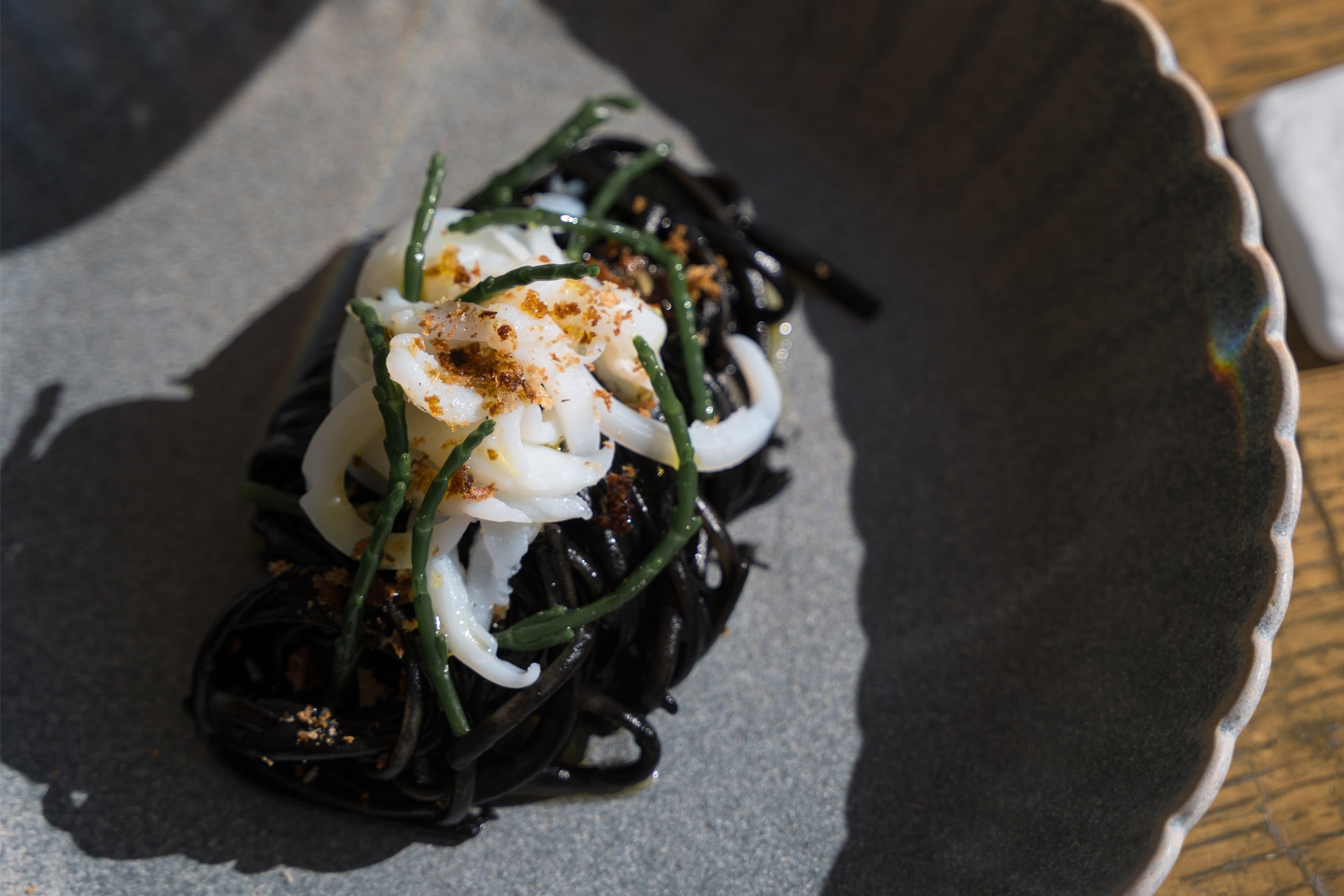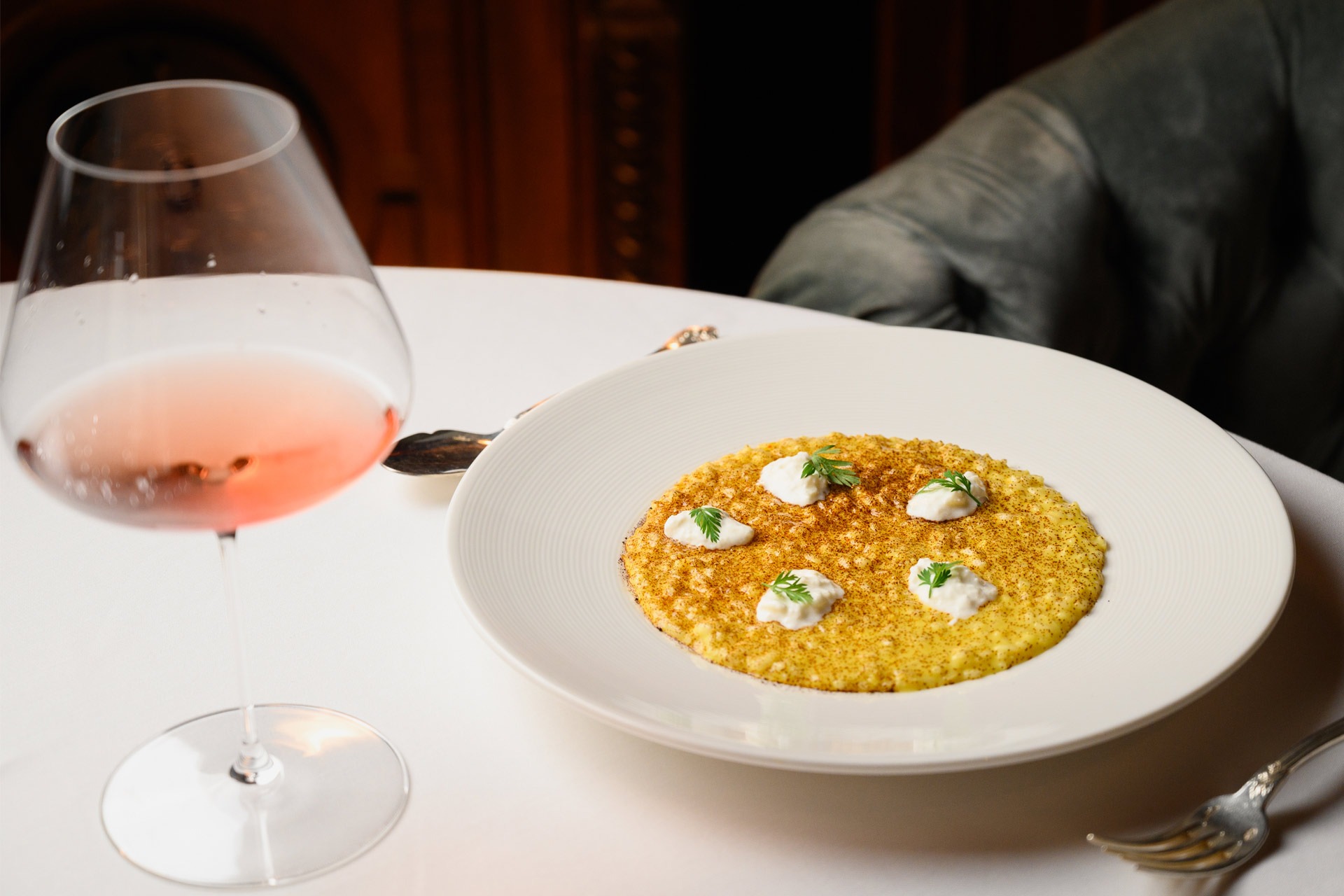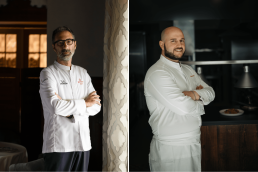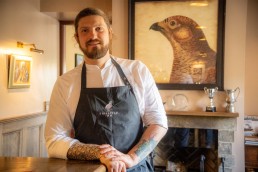Interview: Maurizio Bufi and Claudio Santini on their culinary vision at Grand Hotel Fasano
On the shores of Lake Garda, Grand Hotel Fasano is home to two executive chefs shaping its gastronomic future: Maurizio Bufi and Claudio Santini.
Bufi, who earned a Michelin star at the property’s fine-dining restaurant, Il Fagiano in 2023, brings a philosophy rooted in Mediterranean tradition, honed through years between Italy, Switzerland and Lake Como. His cooking balances technical precision with creativity, giving classic flavours a contemporary edge.
Santini, newly appointed in 2025, adds a dynamic counterpoint. Having led kitchens from the French Riviera to Albania, he channels a versatile culinary repertoire into the hotel’s Trattoria Il Pescatore and Magnolia bistro, where regional character meets modern Italian dining.
We sit down with both chefs to talk about their inspirations, favourite dishes and the future of gastronomy on Lake Garda.
When did you first fall in love with cooking?
MB: I come from a family with a strong culinary spirit, starting with my grandmother who was an excellent cook. She passed on her passion for raw ingredients and for the table to my mother, and consequently, to me. I was born surrounded by the morning aromas that filled our home. I grew up in the era of open-air markets where the word organic didn’t exist yet because everything was organic, where the fish was fresh every day. All these influences were decisive in my choice of profession and, as a result, in falling in love with cooking.
CS: It all started when I was a child, around 7-years-old. Every weekend I would go to my grandmother’s house and watch her cook, and she instilled in me a love for this work. Of course, as I grew up, my grandmother started letting me get my hands dirty, but it was totally different from the real world of catering. Then, when I was 14, I started working in this industry, and even though it was hard, that’s when I realised I loved it.
How would you describe your culinary style?
MB: What I like to follow and what is in my DNA is healthy cuisine, which involves using raw ingredients of the highest quality and freshness. I also try to follow the seasonality of products as much as possible. I use green vegetables during spring: fava beans, asparagus, peas and chard, because each season best expresses its fruits, just as fish has its own seasonality. I use cooking techniques that do not alter the structure and taste of the raw ingredient. I would love to define my cuisine as a purely Mediterranean style with continental influences.
CS: I would describe my culinary style as the simplicity of the Mediterranean. Even if you don’t use many ingredients or techniques, it doesn’t mean a dish can’t be complex and layered. My dishes are totally focused on three ingredients, and the rest is pure flavour.
What is your culinary vision for the menus at Grand Hotel Fasano?
MB: Currently, we have three tasting menus on the menu at Il Fagiano. The Memories menu consists of dishes that recall my experiences and the past. The Evolution menu is created to experiment with new pairings and dishes that, after positive customer feedback, can be moved to the Memories menu. The From the Earth menu is a sequence of vegan dishes based on the concept of elaborating vegetables and enhancing their flavours through technique. We have completed this last menu with a unique experience, pairing cocktails with our award-winning barman; low-alcohol cocktails that allow for lightness in both the dishes and the drinking experience.
CS: Il Pescatore doesn’t have many set menus per se, but my courses have a broad, clear, and decisive culinary vision regarding what we put on the plate to arrive at the final culinary product.
Do you have a favourite dish on the menu?
MB: There are some dishes that are linked to my history, my childhood, and a memory. For several years, we’ve had the Squid, Sweetbread, and Cashew dish, born from a 90s, surf and turf inspiration. I reinterpreted this same concept with the squid. The Lemon, Burrata, and Liquorice Risotto has been on the menu for 8 years. The main ingredient, lemon, has been with me since my childhood and from my homeland, Puglia, following a part of my life’s journey to find it here on Lake Garda, the Riviera of Lemons. Additionally, I balanced the dish with burrata, an ingredient from my homeland, and finally, licorice, an ingredient linked to both my culinary and personal life because as a child I walked to school with a licorice stick in my mouth.
CS: My favourite dish on the menu at Il Pescatore is Linguine with Black Bread Cream, a dish which reflects my childhood in the coastal town of Civitavecchia, near Rome, and celebrates Mediterranean flavours.

What is the most important lesson you’ve learned during your career?
MB: There are moments when you understand that in our profession, the most important and fundamental component, beyond knowing how to cook, is knowing how to be in the kitchen, knowing how to educate the staff to live together throughout the day, and facing moments and difficulties with serenity. This makes the culinary journey much easier. Because, in my opinion, before learning to cook, you need to learn how to behave properly in the kitchen.
CS: From my first experience to today, I have learned one fundamental and important thing: always be humble, but above all, show respect to your staff.
What are the biggest challenges faced by the hospitality sector at the moment, and how are you tackling them?
MB: For several years, the hospitality sector has been experiencing general globalisation. With the advent of the internet, it’s easier to travel and get a cheap flight, and consequently, find excellent hotels at competitive prices. This situation generates knowledge and wisdom on the part of tourists because they are well aware of all travel, dining, and hotel dynamics.
Personally, at the Grand Hotel Fasano, we have changed our client base for several years, becoming more visible in the global market. Our inclusion in The Leading Hotels of the World, Virtuoso, and also entering the Michelin Guide as a restaurant have been favourable. The change in tourism also means adapting the choice we offer our guests; a new stimulus to keep the passion and art of hospitality and dining alive.
CS: The most difficult thing that we are facing right now in the hotel industry is staffing. Today it is very difficult to find qualified personnel who truly want to undertake this work with love and respect.
Which chefs have inspired you during your career?
MB: Between the ages of 16 and 24, I spent a lot of money buying cookbooks and magazines. I liked the idea of comparing myself to other more avant-garde and professional chefs. So, the only way at that time, when the internet didn’t exist, was to read and copy. There were several reference chefs who caught my attention, for example: Moreno Cedroni, Fulvio Pierangelini, Claudio Sadler, Norbert Niederkofler, all chefs from whom I was able to grasp something or, even better, understand at that age what style to start following.
CS: My idol who inspires me daily is Antonino Cannavacciuolo, one of Italy’s culinary icons who has amassed 9 Michelin stars. His focus on genuine flavour and high-quality ingredients resonates with me deeply, as does the fact that he demonstrates a strong connection to his roots and a passion for showcasing the very best of our country’s cuisine.
What is your approach to sustainability in the kitchen?
MB: A fundamental focus is sustainability, and this must be a focus for each of us who practice this profession. By sustainability, I don’t just mean waste or seasonality, but also mental sustainability, offering a healthy environment for our collaborators so that they can work happily and put into practice everything they are taught.
CS: My approach is that I am not a chef like all the others, in the sense that I can’t stay on my own; I like to open up a lot with the team and give them confidence, even if sometimes it might be wrong for the distinction of roles and the risk of going off script.
What’s next on your project wish list?
MB: There’s always space in my drawer for my difficult but not unattainable dreams. I personally always like to raise the bar and put a little bit of spice in all my projects. I define myself as a dreamer; but time brings the results.
CS: My next project is to find a structure that allows me to reach the Michelin guide. I have worked and fought all these years to get here, and I am 33-years-old, and I want to succeed in getting there. And not just the Michelin guide, but also Gambero Rosso and other important guides.
What is your favourite dish, and who cooks it?
MB: When I have the chance, I always try to go home to be pampered by the delicacies that my mother prepares just for me, because she cares and likes to see me happy. That being said, among all this, there’s always Puglian focaccia, orecchiette with turnip greens, vegetables cooked in various ways and the variety of legumes that only a mother knows how to entice you with.
CS: My favourite dish is the linguina al nero from my restaurant menu; it’s an intense and very flavourful dish where you truly taste the flavour of the sea. Not everyone understands it; you have to immerse yourself in it.

CREDITS
Photography: Federico Pasinetti
Related Posts
27 January 2026
Supper is Served: Issue 46
8 January 2026



